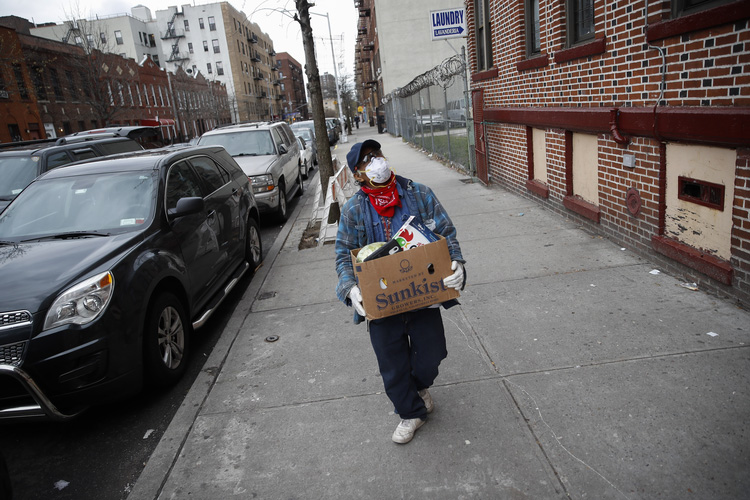by J.D. Long-Garcia, America Magazine
 workers and those who work in healthcare are unquestionably essential workers. And according to the Center for Migration Studies in New York, nearly 20 million immigrants work in jobs that are critical to the nation during the coronavirus. Roughly half are naturalized citizens and the rest are legal noncitizens or undocumented migrants.
workers and those who work in healthcare are unquestionably essential workers. And according to the Center for Migration Studies in New York, nearly 20 million immigrants work in jobs that are critical to the nation during the coronavirus. Roughly half are naturalized citizens and the rest are legal noncitizens or undocumented migrants.
“They’re disproportionately represented in essential jobs,” said Donald Kerwin, the Executive Director of the Center. “They work front-line jobs, often risking their lives. They’re not being paid well and are treated poorly by national policies. We owe immigrants a lot. We don’t acknowledge that enough.”
According to the report, 16 percent of U.S. healthcare workers are immigrants. In states that have been hardest hit by the pandemic, the rates are even higher. In New York, for example, 33 percent of healthcare workers are immigrants, and in California, the rate is 32 percent.
In the agricultural sector, 31 percent of the total workforce are immigrants, and The New York Times reports that about half of all field workers are undocumented migrants. There are also high rates of immigrant jobholders in food manufacturing and processing (26 percent), grocery wholesalers (26 percent) and retail grocery and food industries (17 percent).
All of the jobs that we don’t pay attention to and don’t think about, these are essential jobs,” Mr. Kerwin told America. “And immigrants fill them. How are we paying immigrants? Very poorly. And it’s even worse during the crisis, when their essential work is even more important.”
 Ashley Feasley, the Director of Migration Policy and Public Affairs for the United States Council of Catholic Bishops (USCCB), said both documented and undocumented immigrants work in the healthcare sector. Of the estimated 280,000 undocumented workers in healthcare, for example, nearly 45,000 are working as nursing assistants and nearly 30,000 work as home health aides according to 2018 data from the U.S. Census Bureau.
Ashley Feasley, the Director of Migration Policy and Public Affairs for the United States Council of Catholic Bishops (USCCB), said both documented and undocumented immigrants work in the healthcare sector. Of the estimated 280,000 undocumented workers in healthcare, for example, nearly 45,000 are working as nursing assistants and nearly 30,000 work as home health aides according to 2018 data from the U.S. Census Bureau.
“These are people who are working while you and I stay home,” she said. “They’re a vital part of the economy, both imigrants and refugees. When we think about the scale of this, we have to recognize the human side of it. Not everyone is suffering equally in this country or in the world.”
Maria Elena Manzo, a community leader with Communities Organized for Relational Power in Action in California said undocumented workers, who have not received funds from the federal government’s emergency stimulus package, are struggling. Hotel closings have left many unemployed and farm laborers have seen reduced hours – some as few as four hours a week.
“It’s not like you have savings. They don’t have enough money for rent,” Ms. Manzo said. Many come home to crowded homes with multiple families living in one house. “If you don’t have money to pay the rent, you go to a predatory lender. They’re already behind, and by the time this is over, they’re going to be even further in debt.”
Christina Garcia, of the Marin Organizing Committee, which advocates for low-income community rights, is undocumented and has been in the United States for the last 20 years.
As a part of her organizing group, she has been in touch with about 400 families. Most of [these] families have children who are U.S. citizens. They sometimes have to decide between paying for the internet for their children to keep up with school or buying food. Parents are depressed because they do not see an end to their employment struggles.
“I’m not saying that everyone isn’t suffering. Everyone is,” she said. But the immigrant has it more difficult.”
This is true for immigrants across the United States.
To read the entire article click here:
